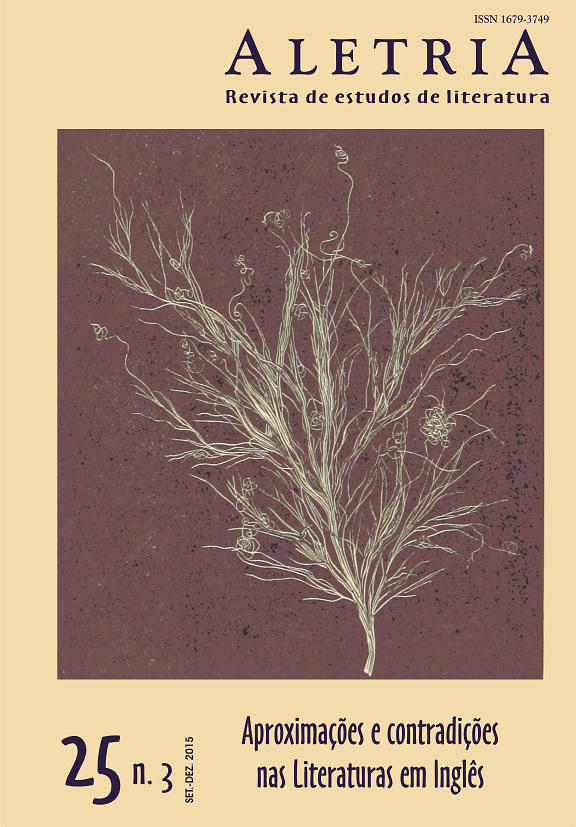Temporalization and Spacing in Dystopias by Haruki Murakami and George Orwell, 1Q84/1984
DOI:
https://doi.org/10.17851/2317-2096.25.3.147-160Keywords:
Haruki Murakami, dystopia, George OrwellAbstract
The present work has as its main objective to think the issues of space and temporality of dystopia in the novel 1Q84 writen by Haruki Murakami on a comparison with the homonymous work written by George Orwell. We try to think how this process of a temporalized narrative in Orwell’s novel is appropriated and transformed by the aesthetic project of Murakami. Therefore, our research will focus on trying to reflect on the process of a spacialized dystopia, carried out by Haruki Murakami in his novel, seeking to think how he is able to also inaugurate a new experience of time in which the dystopia is no longer in the distant future but in the past (or present) of its readers. The year 1984 in George Orwell turned in a symbol of terror that was on the prowl for his readers, now – in 2009 – is taken up by Murakami as a dystopian past, as another place where the terrible world of 1Q84 takes place. Thus begins a specialized distopia which is at the same time, a distopia of the past.
Downloads
References
BAKHTIN, Mikhail. A estética da criação verbal. São Paulo: Martins Fontes, 1997.
BERLIN, Isaiah. Limites da utopia: capítulos da história das ideias. São Paulo: Companhia das Letras, 1991.
CALVINO, Italo. As cidades invisíveis. São Paulo: Biblioteca Folha, 2003.
HABERMAS, Jürgen. Diagnósticos do tempo, seis ensaios. Rio de Janeiro: Tempo Brasileiro, 2005.
HUXLEY, Aldous. Admirável mundo novo. Porto Alegre: Editora Globo, 1979.
JAMESON, Fredric. Archeologies of the future: The desire called utopia and other science fictions. London: Verso, 2007.
KOSELLECK, Reinhart. Crítica e crise: uma contribuição à patogênese do mundo burguês. Rio de Janeiro: EDUERJ; Contraponto, 1999
KOSELLECK, Reinhart. Estratos do tempo: estudos sobre história. Rio de Janeiro: Ed. Puc-Rio; Contraponto, 2004.
KOSELLECK, Reinhart. Futuro passado: contribuição semântica dos tempos históricos. Rio de Janeiro: Ed. Puc-Rio; Contraponto, 2006.
MORRIS. William. Notícias de lugar nenhum. São Paulo: Fundação Perseu Abramo, 2002.
MURAKAMI, Haruki. 1Q84. Livro 1. Rio de Janeiro: Alfaguara, 2009.
MURAKAMI, Haruki. 1Q84. Livro 2. Rio de Janeiro: Alfaguara, 2009.
MURAKAMI, Haruki. 1Q84. Livro 3. Rio de Janeiro: Alfaguara, 2010.
ORWELL, George. 1984. London: Penguin Books, 1989.
WELLS, H. G. A modern utopia. London: Penguin Books, 2005.
WILLIAMS, Raymond. Cultura e sociedade: de Coleridge a Orwell. Trad. Vera Joscelyne. Petrópolis: Editora Vozes, 2011.
WHITE, Hayden. Meta-história: a imaginação histórica no século XIX. São Paulo: EDUSP, 2008.
ZAMYATIN, Yevgeni. Nós. Lisboa: Antígona, 2004.
Downloads
Additional Files
Published
How to Cite
Issue
Section
License
Copyright (c) 2016 Rafael da Cunha Duarte Francisco (Autor)

This work is licensed under a Creative Commons Attribution 4.0 International License.
Authors who publish with this journal agree to the following terms:Authors retain copyright and grant the journal right of first publication with the work simultaneously licensed under a Creative Commons Attribution Non-Commercial No Derivatives License that allows others to share the work with an acknowledgement of the work's authorship and initial publication in this journal.Authors are able to enter into separate, additional contractual arrangements for the non-exclusive distribution of the journal's published version of the work (e.g., post it to an institutional repository or publish it in a book), with an acknowledgement of its initial publication in this journal.Authors are permitted and encouraged to post their work online (e.g., in institutional repositories or on their website) prior to and during the submission process, as it can lead to productive exchanges, as well as earlier and greater citation of published work (See The Effect of Open Access).





